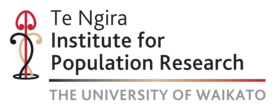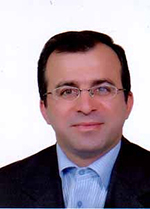 Thursday November 29th, 2012
Thursday November 29th, 2012
1:10 - 2:00pm
Room S.1.03
Dr Yaghoob (Yaqub) Foroutan (Post-Doctoral Fellow, NIDEA, Waikato University)
Family and Gender Representations through Educational System
Abstract:
Using a socio-demographic approach, this seminar presents research-based evidence to examine the association between educational institution and family and gender representation and to understand the process of socialization. The Second Demographic Transition theory focuses mainly on family and its substantial changes including small family size and very low fertility, and new living arrangements and family formation. The family changes are also closely related to ‘gender equity’ (McDonald 2000) and women’s status in the family and society. Further, the changes associated with family formation and gender roles are mainly the consequence of socialization process. While the importance of other socialization agents (the family, peer groups, mass media, public opinions and religion) are acknowledged in the socialization theory, it recognizes educational system particularly school and its educational resources as the first official agent of and the most powerful engine of socialization. This seminar discusses the main patterns associated with the representation of family characteristics and gender differentials in the school education resources. Using the method of content analysis, it includes 140 textbooks of Primary, Intermediate and Secondary schools of New Zealand published between 1958 and 2011. The data collection was based on two research projects funded by University of Waikato FASS Contestable Research Grant and 2011-2012 University of Waikato Summer Research Scholarship (Ms Frances Cox-Wright under supervision of Dr Foroutan).
Speaker's Bio:
Dr Yaghoob (Yaqub) Foroutan is Post-Doctoral Fellow at the National Institute of Demographic and Economic Analysis (NIDEA), The University of Waikato. He has been recently appointed as Adjunct Research Fellow at The Swinburne Institute for Social Research, Swinburne University of Technology, Melbourne, Australia. Dr Foroutan also holds a position as Assistant Professor at The University of Mazandaran in Iran. He completed PhD in Demography at The Australian National University (ANU), Canberra, Australia. His doctoral research examining demographic dimensions and determinants of women’s market employment with specific focus on the effects of migration, ethnicity and religion (particularly, Muslim immigrants) won The W. D. Borrie Essay Prize awarded by The Australian Population Association. Dr Foroutan has published extensively in peer-reviewed journals including Journal of Population Research, International Migration Review, Immigrants and Minorities, South Asia Research, Asian Journal of Women’s Studies, Australian Religion Studies Review, Fieldwork in Religion, Journal of Muslim Minority Affairs, and New Zealand Sociology. He also wrote a chapter on the association between gender and religion in the book “The World’s Religions: Continuities and Transformations” published by Routledge in 2009. His most recent publications include an article (“Gender Representation in School-textbooks of Iran: The Place of Language”) in the journal of Current Sociology (2012, forthcoming), a chapter (“Content Analysis of Religious Education in the Islamic Republic of Iran”) in the book “Society, the State and Religious Education Politics” (Ergon Publishing House, Würzburg, Germany, 2012, forthcoming)), and a chapter (“Socialization or Institutionalization of State Religion? A Response from the Muslim World”) in the book “Islam and Democracy: Prospects and Pathways” (UK: Cambridge Scholars Publishing).
 Thursday October 18th, 2012
Thursday October 18th, 2012
1:10 - 2:00pm
KG.09
Professor Graham Clarke (Business Geography, The University of Leeds, UK)
The Potential of Microsimulation in Geography and Regional Science
Abstract:
This seminar will review progress to date in spatial microsimulation modelling and discuss current research directions, especially in relation to the author’s own work. The potential of microsimulation will be illustrated through examples relating to fields such as population analysis, regional science (spatial economics and impact assessment), social policy, health and retailing. The seminar will discuss issues relating to model construction, calibration and scale. The benefits of the range of model outputs will be discussed through a suite of applied projects the author has been involved with (as well as incorporating some key work from around the World). The seminar will conclude with some thoughts on future research priorities.
Speaker's Bio:
Graham Clarke is Professor of Business Geography at the University of Leeds. He has worked extensively in GIS and applied spatial modelling, focusing on many applications within urban/social geography. A major research interest is spatial microsimulation, a technique for estimating ‘missing data’ and producing detailed household data sets for use in a wealth of social science simulations. This includes a large research programme to forecast future trajectories of urban welfare (by dynamically simulating urban and regional populations in Britain – ultimately building up to a national ‘SimBritain’ model). Recent health applications of spatial microsimulation include the study of obesity, type II diabetes and the location of community services for anti-smoking and maternity care. More recently Graham has explored the linkages between microsimulation and geodemographics and has begun a major new research programme to explore the linkage between macro and micro models for economic impact assessment. In 2003 he was appointed Executive Director of the Regional Science Association International.
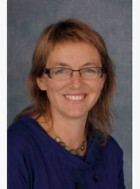 Thursday September 27th, 2012
Thursday September 27th, 2012
1:10 - 2:00pm
Room KG.07
Dr Polly Atatoa Carr (Centre for Longitudinal Research - He Ara ki Mua, The University of Auckland)
Growing Up in New Zealand: Now We Are Born
Abstract:
Growing Up in New Zealand is this country’s contemporary longitudinal study that is following approximately 7000 participants from before birth. In 2009-2010, pregnant women and their partners were recruited and face-to-face interviews were conducted, followed by further interviews when their children were 9 months and 2 years of age. Short telephone interviews have also been conducted through the first two years of life, and data from perinatal hospital and health records linked to the longitudinal dataset. This study provides contemporary evidence of the early life experience for families growing up in New Zealand today and is the first longitudinal study that is powered to provide evidence of early trajectories to success and equity for Māori, Pacific, Asian and New Zealand European children from diverse socioeconomic context. This seminar will describe the development and conceptual framework of Growing Up in New Zealand, and present some key findings regarding the developmental environment of the current generation of New Zealand children, from conception to 9 months of age.
Speaker's Bio:
Polly is a specialist in Public Health Medicine and an Honorary Senior Lecturer at The University of Auckland, based at the Waikato Clinical School. Prior to her medical and public health training, Polly’s academic career began with a BSc from the University of Waikato and a MSc in molecular biology from the University of Auckland. As a public health doctor Polly has worked in a wide range of areas including Māori health, Rheumatic Fever, Environmental Health and Health Impact Assessment. Her major research interests are the societal and cultural impact on health, life course development and equity; research ethics; and the translation of evidence into effective and responsible policy. As an Associate Director of Growing Up in New Zealand, Polly is excited about the opportunity that New Zealand’s contemporary longitudinal study provides to ensure we are building the best evidence-based policy for our children now and into the future.
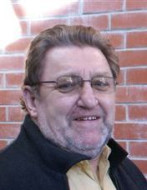 Thursday August 23rd, 2012
Thursday August 23rd, 2012
1:10 - 2:00pm
KG.07
Dr Brian Easton (Honorary Research Fellow, NIDEA, The University of Waikato)
The Post-War Maori Urbanisation
Abstract:
Brian is writing a history of New Zealand from an economic perspective. The book has many chapters on the Maori, including one on the post-war Maori urbanisation. While it is primarily a narrative, the text implicitly reviews current thinking and offers a different account with more emphasis on the economic drivers of the transformation. The seminar offers the opportunity to test out the chapter (it’s no 34) with a group of informed academics.
Speaker's Bio:
Dr Brian Easton is an independent scholar with a background in economics, social statistics and public policy analysis. He holds honorary positions in five New Zealand universities including with NIDEA at the University of Waikato, and is a Distinguished Fellow of the New Zealand Association of Economists is writing a history of New Zealand from an economics perspective – there are already over 230,000 words and he is only up to the 1970s. His previous book was Globalisation and the Wealth of Nations and he also is involved in a variety of economic debates, as is evident from his fortnightly economics column in The Listener.
 Thursday July 26, 2012
Thursday July 26, 2012
1:10 - 2:00pm
I.1.01
Theresa Riley (The University of Auckland)
Misconceptions about Non-Conception
Abstract:
What happens when a heterosexual couple makes a choice to not have children? How do they see this impacting on social relationships, and why? What are the current attitudes in New Zealand towards (non-)reproductive decisions? The seminar will address these questions using research into the social impacts and experiences of childfree couples living in New Zealand. Key findings, such as stereotypes and forms of social pressures, and relevant issues will be discussed. The research involved interviews with ten heterosexual ‘childfree’ couples living in Hamilton, and a focus group bringing together five of the couples.
Speaker's Bio:
Currently, Theresa is studying at the University of Auckland, in the final year of her PhD in Health Science. Theresa graduated with her MSocSc (First Class, Waikato) in 2008. The title of the thesis being “Childfree couples' experiences of stereotyping, harassment and pressure”. She was supported by a University of Waikato Masters Award (2007) and Trust Waikato Community Research Award (2006). The thesis has been published as a book titled “Being Childfree in New Zealand: Couples who choose to not have children”. Previously, she completed a BSocSc and BSocSc (Hons, First Class) at Waikato, majoring in psychology. She has appeared in multiple publications discussing the topic of her Masters, including Next magazine, Waikato Times, University of Auckland UniNews, and the New Zealand Herald, and been interviewed on Radio New Zealand and 95b FM.
Being Childfree in New Zealand: Couples who choose to not have children
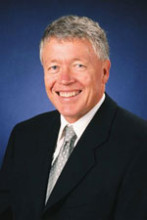 Friday June 22, 2012
Friday June 22, 2012
1:10 - 2:00pm
S.G.03
Professor Richard Bedford (NIDEA, The University of Waikato)
Welcome to New Zealand... as long as you are not a parent, sibling or adult child of a migrant
Abstract:
In July 2012 several major changes to immigration policy will come into force. The main changes will affect criteria for selection for residence for parents, siblings and adult children of immigrants who have already gained residence in New Zealand. One of the main changes will be the introduction of a two-tiered system in which family members and their sponsors must meet some new requirements in order to gain priority in the queue for entry to New Zealand under the “family” category. The two-tier system is modeled on one that Australia has been using for a number of years and it discriminates heavily against families with limited incomes. Many of New Zealand’s immigrants from the Pacific Islands as well as those accepted under the refugee quota system will not meet the new criteria for prioritized entry of family members. This seminar will review the wider implications of this policy change.
Speaker's Bio:
Professor Richard Bedford QSO, FRSNZ is Professor of Population Geography in the National Institute of Demographic and Economic Analysis (NIDEA) at the University of Waikato and Pro Vice-Chancellor Research at Auckland University of Technology. He is a specialist in migration research and since the mid-1960s he has been researching processes of population movement in the Asia-Pacific region. He is a member of the Ministerial Advisory Committee on Official Statistics (ACOS), and an adviser to the Department of Labour on the Recognised Seasonal Employment (RSE) work policy. His current research addresses the policy implications, for New Zealand and Australia, of population developments and migration trends in the Pacific, including the impact of climate change on migration.
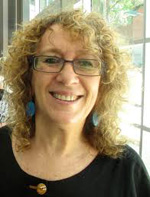 Thursday May 24, 2012
Thursday May 24, 2012
1:10 - 2:00pm
S.1.02
Professor Linda Briskman (Swinburne University of Technology, Australia)
Indigenous Populations and Asylum Seekers in Australia: Human Rights Perspective
Abstract:
Increasing evidence in Australia reveals extreme levels of disadvantage for Indigenous populations, particularly those who were removed from their families and communities, and refugee populations, predominantly those emerging from immigration detention centres. The paper argues that interdisciplinary perspectives supplement the field of demography in analysing the reasons why such disadvantage persists. Using the concept of ‘racialised banishment’, the findings from qualitative and ethnographic research in Australia are presented to examine how both Indigenous peoples and asylum seekers/refugees have been excluded from the nation state through removal to sites of isolation (reserves, missions, immigration detention); by denial of normative state rights (liberty and economic and social rights); and through the denigration of cultural, spiritual and religious identities (Indigenous relationship with land and Muslim asylum seekers). The paper poses the question of how exclusionary trends might be reversed to overcome disadvantage and to reinstate rights to both population groups.
Speaker's Bio:
Professor Linda Briskman is a human rights academic and activist. Her work spans the domains of Indigenous rights and asylum seeker rights and she has published extensively in both areas. Linda convened the People’s Inquiry into Immigration into Detention in Australia and is committed to ensuring that asylum seeker voices are heard in the public domain. Publications include Social Work with Indigenous Communities (2007) and the co-authored Human Rights Overboard: Seeking asylum in Australia which won the 2008 Australian Human Rights Commission Award for Literature (non-fiction). Linda is currently working with Yaghoob Foroutan and Douglas Pratt from the University of Waikato on developing an international project on religious and racial intolerance.
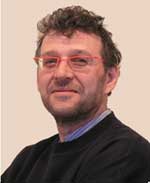 Thursday April 26, 2012
Thursday April 26, 2012
1:10 - 2:00pm
K.3.19
Professor Raymond J.G.M. Florax (Purdue University, USA & VU University Amsterdam, The Netherlands)
Agriculture, Transportation and the Timing of Urbanization: Global Analysis at the Grid Cell Level
Abstract:
This paper addresses the timing of a location’s historical transition from rural to urban activity. We test whether urbanization occurs sooner in places with higher agricultural productivity and lower transport costs, using worldwide data that divide the earth’s surface at half-degree intervals into over 60,000 cells. From an independent estimate of each cell’s rural and urban population history, we identify the date at which each cell achieves various thresholds of urbanization. Controlling for unobserved heterogeneity across countries through fixed effects and neighbors’ urbanization using spatial techniques, we find that the date at which each cell passes each urbanization threshold is positively associated with its suitability for cultivation, having seasonal frosts, more access to navigable waterways and lower elevation. Aggregating cells into countries, an earlier urbanization date is linked to higher per capita income today.
Speaker's Bio:
Raymond J.G.M. Florax holds degrees in economics and sociology, and is professor in the Department of Agricultural Economics at Purdue University, in the US. He is also associated with the Department of Spatial Economics at the VU University in Amsterdam, The Netherlands. In Amsterdam, he formerly directed the department’s MASTER-point research group engaged in research on meta-analysis in spatial, transport, and environmental economics, and coordinated a research program on the use of energy efficient technology in small and medium sized enterprises. At Purdue University he directs a research group focusing on “Space, Health and Population Economics” (SHaPE). His research deals with spatial data analysis, spatial and environmental modeling, and meta-analysis. He has published widely on these topics. He has served a ten-year tenure as editor-in-chief of the journal “Papers in Regional Science,” and is a fellow of the Spatial Econometrics Association (SEA), the Tinbergen Institute (TI), and the Wageningen School of Social Sciences (WASS).
 Thursday March 22, 2012
Thursday March 22, 2012
1:10 - 2:00pm
J.G.17
Dr Tahu Kukutai (NIDEA, The University of Waikato)
Theorising the Global Māori Diaspora
Abstract:
With the increased political and scholarly attention given to New Zealand’s diaspora and the implications of the so-called ‘brain drain’ has come a renewed interest in Māori living overseas. The last decade has seen the emergence of a small but important body of work on Māori transnationalism, much of it focused on the estimating the size and structure of the Australian-resident Māori population. While researchers are beginning to pay attention to the demographic and policy implications of international Māori migration, there remains something of a black hole when it comes to theorising the flow of indigenous people, resources and ideas from Aotearoa to other parts of the world. This paper blends insights from theories of diaspora, transnationalism and indigeneity to develop a syncretic framework within which to investigate the global Māori disapora. It focuses on three key questions: How useful is the concept of a global Māori diaspora? What distinguishes indigenous diasporas from others kinds of diasporas? How might a theory of Māori transnationalism generate new ideas about about indigeneity, migration and disaporic communities? The possibilities for theoretically-informed investigations of Māori diaspora are illustrated using national census data on Māori living in Australia, the United Kingdom and Canada, as well as data on Māori expatriates from the 2011 Every Kiwi Counts survey.
Speaker's Bio:
Tahu Kukutai (Waikato-Tainui, Ngāti Maniapoto, Te Aupōuri) is a Senior Research Fellow at the National Institute of Demographic and Economic Analysis (NIDEA) at the University of Waikato. She holds a PhD in Sociology from Stanford University and a Masters in Demography from the University of Waikato. Tahu has studied Māori population dynamics for much of her academic career. Her research spans multiple levels, from action-based research in rural Māori communities, to comparative projects examining Indigenous demographic change and well-being internationally. Tahu was recently awarded a Royal Society of New Zealand Marsden Fast Start grant to investigate ethnic classification in censuses around the world for the past 25 years. She is a former Fulbright recipient and serves on numerous committees representing Māori and academic interests.
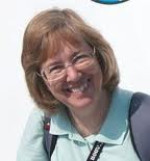 Thursday February 16, 2012
Thursday February 16, 2012
1:10 - 2:00pm
S.G.03
Dr Marion Burkimsher (The University of Lausanne, Switzerland)
Are Women in Europe still Having Babies?
Abstract:
New Zealand’s total fertility rate has been hovering around the mystical ‘replacement value’ of just over two children per woman for many years. However, over in Europe the total fertility rate reached ‘lowest-low’ levels in several countries, not much above one child per woman, causing some alarm among policy-makers. However, since roughly the turn of the millennium, fertility rates have started to rise again in most – but not all – European countries. This presentation will look at the trends and complex interrelationships of the timing of childbearing and family size, together with the influence of migration. The differences between the patterns of timing and number of children born in Eastern Europe and Western Europe will be highlighted. The value of detailed statistics by birth order will be highlighted with examples from Switzerland. Some of the international datasets available will be presented, for example the Human Fertility Database and Generations and Gender Survey. And so to answer the question posed in the title: Yes, women are still having babies in Europe – more than they used to – though still not as many as in New Zealand.
Speaker's Bio:
Dr. Marion Burkimsher is a Geographer at heart, though she has followed a varied course through her career, from surveyor to linguistic editor to author. Her PhD studies in Glaciology (at the University of Manchester) can be compared to her more recent MSc in Demography (at the University of Geneva), as both glaciers and population are dynamic systems, with independent inputs and outputs. She is currently an independent researcher affiliated to the University of Lausanne, Switzerland. Cross-country comparisons and quantitative analyses using large databases are her current interests, with a focus on fertility trends and religious trends. View more details.
